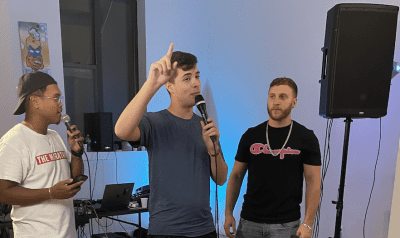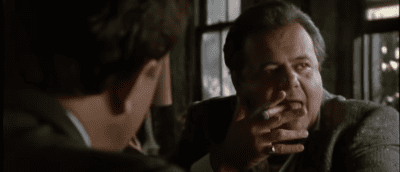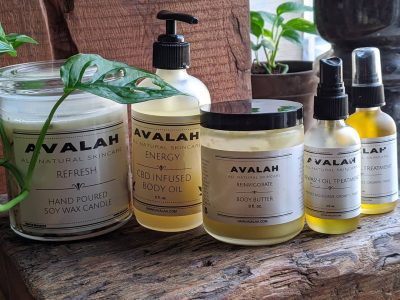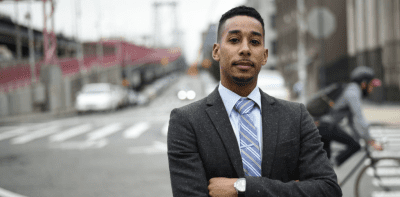Interview with 2018 NBCC Criticism Award Finalist Carina Chocano
For the past four years, the National Book Critics Circle has partnered with The New School’s MFA Creative Writing program, allowing the students to interview each of the NBCC Awards Finalists. In addition to building excitement for the Awards Finalist Reading and Ceremony held at the New School March 14th-15th, these interviews have built an intergenerational bridge between the writers of today and tomorrow.
This year, as part of the ongoing collaboration, and in support of the NBCC’s conversation about reading, criticism, and literature that extends from the local to the national, Brooklyn Magazine will publish and promote the interviews between NBCC Finalists and the current students of The New School.
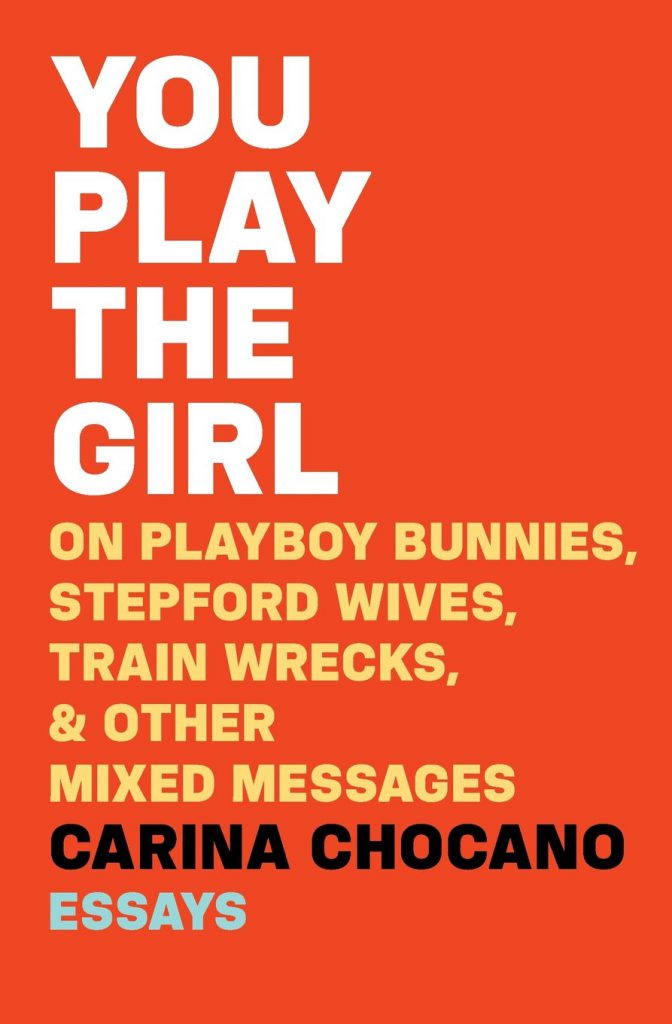
While reading stories like Sleeping Beauty and Alice’s Adventures in Wonderland to her young daughter, pop culture critic Carina Chocano noticed—not for the first time—the cognitive dissonance between media representations of women and the reality of women’s lives. Her book You Play The Girl combines feminist texts, news stories, criticism, philosophy, and her personal experience to examine The Bachelor and Amy Schumer and highlight issues such as the economics of marriage, the problem with thinking of parenting as a job, and the idea that women’s experiences are niche while men’s are universal. The book is richly layered, insightful, and often darkly funny as Chocano shifts deftly between discussions of Playboy Bunnies and Judith Butler, Mad Men and Virginia Woolf, Sandra Bullock and Slavoj Žižek.
Recently Chocano talked about the rare portrayal of women as monstrous geniuses, how pop culture can define you, and the common fallacy that sexism is over.
I want to ask about the genesis of these essays. Were they topics you’d already been thinking about, or had you been watching and consuming media that then brought about these ideas?
It’s hard to say. I know that I had always thought about these things and always questioned the place of women in society across classes and races and socioeconomic status. When I started working as a critic and I started being assigned the stories that were considered more aimed at women, or even when I wasn’t, the female characters that I saw were always so dissonant. They always felt like these fictions that I was meant to identify with. I felt like there were very few authentic female voices in mass media and very few accurate representations. Criticism became a way to talk back.
After I’d been at the LA Times for five years and I was laid off, my daughter was four months old, and I’d spent the last year there getting increasingly depressed at the images I was seeing on the screen. Being pregnant and feeling like “Wow, this is the prospect? I might as well go smoke a pack of cigarettes.” I’d been thinking about the book but then I came across an interview where Isla Fisher was home in Australia. This was a few years after she’d done Wedding Crashers. It was a breakout part for her and she stole the show, she was really funny. She was asked by the interviewer, “You must be getting all kinds of offers.” And she said, “No I’m not. At first I thought there was something wrong with me, and then I realized that in Hollywood all the parts are written for men and you play the girl.”
That sentence really clicked with me. This was early days of online harassment and she was immediately trolled by media outlets who picked up that line and ran it under headlines like “Borat Babe Plans Sex Revolution” and everyone made fun of her. I remember two things: one was that I felt like, I’m not the only person who feels this way; and second is that it’s dangerous to speak out against this.
As a critic, or even just as a viewer, are you able to separate art from artist? I feel like that’s getting harder in this post-Weinstein, post-MeToo moment.
It’s such a complex question and it’s really hard to make blanket statements about it. I don’t find myself breaking with artists that I love because of certain things I find out about them. But I do feel that as I get older or as I encounter more things, I find artists who have problematic attitudes and that permeates their work. So it’s not that I feel like, “Woody Allen did this and so I reject him,” it’s that Woody Allen’s work says these things that don’t speak to me anymore, and that I recoil from. It’s not even a critical reaction, it’s a visceral, emotional response.
When I watch the movies and I see his attitudes reflected in the way he understands and portrays the world, I’m like, “Ew.” I find it unrealistic, and nothing about it feels true. And that’s my main thing. I think when something doesn’t feel true, if it doesn’t reflect a reality that I recognize as human or emotionally true, then I have no interest in it.
It’s really interesting to think about Flashdance and how Alex is this monstrous genius, moody and difficult but it’s accepted because she’s talented, since women so rarely are allowed to be that way. Can you think of other women in pop culture who get to be the monstrous genius?
In Desperately Seeking Susan, Madonna is sort of this way. She doesn’t make anything, but I think she lives that life in a way that’s idealized, and certainly idealized by the other character. But it’s not common because men haven’t traditionally portrayed women that way. Even when they recognize that the woman is talented, it’s always turned into some tragic burden that she has to bear.
The closest I could think of was Meryl Streep in The Devil Wears Prada, but even that doesn’t seem exactly right.
She’s portrayed as a tragic figure too. Her children don’t love her. I was thinking more of things like My Brilliant Career by Gillian Armstrong. But it’s hard to think of them. A recent example, it’s not quite this, but Lady Bird acknowledges female artistic ambition and legitimizes it and paints it as a beautiful coming-into-oneself instead of a tragedy.
I related to what you wrote about the books and movies that you loved as a kid defining you. I think that’s really true, that as much as our family and friends, the things that we’re consuming as kids contribute to our personalities. I’m curious if you’re seeing that in your daughter too, whether or not they’re things that you’re bringing to her.
Definitely. I try to have some influence over what she watches, but I don’t always watch her like a hawk. And you can’t. She spends time at friends’ houses. It’s harder to do that, and I don’t know that it’s something that I necessarily want to be doing all the time.
The most amazing thing for me is I’ve noticed her cadence change if she’s watching a lot of Disney Channel shows, which is the one thing I’m always turning off, but she finds a way. She loves these shows and they’re about these extremely stylized, above-it-all, sophisticated teenagers who always have blowouts and perfect makeup, and they speak in this certain way. And it’s written by 40-year-old men. It’s really creepy. There’s a kind of cadence, a kind of rhythm, a kind of delivery, and when I hear it I’m like, “Ah! You sound like the TV!” I think that we need to pay more attention to it, because these things really seep in.
It’s like the Sorkin-izing of tween media, that there’s a certain cadence to the way everyone is talking.
It is just like that. Exactly.
What do you want to introduce her to in the future, pop-culture wise?
There’s a way in which I wish we could move away from this much media consumption. I did introduce her to a lot of things that she likes, but now I think maybe she should just be outside more. But I also think that we’ve had really great stuff come out, that I realize now I didn’t have as a child, and it’s really cool to see. We went to see Ghostbusters with one of my daughter’s best friends, and they were so inspired by it. They came out of the theatre playing Ghostbuster. She dressed up as a Ghostbuster for Halloween. I remember that I would go to movies and come out and play the characters too, and we’d all play the male characters because the female characters were so passive. So the fact that she’s been able to do this with Wonder Woman and The Last Jedi and Ghostbusters is a real shift.
We went to see Hidden Figures because all the girls were talking about it in the third grade. It surprised me that all these third graders who were really into Star Wars and superhero things would be interested in this period drama. We went to see it and she absolutely loved it and came out saying she wanted to be an engineer when she grew up. So I think you really have to take seriously that these things do influence how we think of ourselves. To see those women in these heroic roles—but they’re ordinary women, not in costume—really inspired her.
I was so interested in what you wrote about your daughter learning about sexism, but that in the book she was reading it was framed as all in the past. And you had to explain, “No, this is still a thing.”
This is what inspired me to write the book. I was a little kid in the ‘70s and the children’s media was really overtly feminist because there were commissions and there were studies and there were all these men behind it making very ungendered kids programming. That’s what I was watching in early childhood and it was very progressive. It changed, but by then my sense of gender equality had already been formed. So there was a constant dissonance that never went away because I was very solid on the idea that I could do anything, that we were equal.
I didn’t encounter anything overt in my life or in school that made me think, “girls have to do this or that.” There were definitely still hints. But the backlashes [against feminism] weren’t acknowledged, really. Then it happened again in my twenties. There was a feminist moment that again was beaten back. And this was the third round and I was like, “Why does society insist on telling us there is no problem when there’s obviously a problem?” It makes it very difficult to tackle the problem, because you have to name it and acknowledge it in order to tackle it. I started to think about how harmful that is because it’s gaslighting.
I felt the same way. You grow up thinking you can do anything and, until your twenties, maybe you can. Then the playing field shifts.
Yeah, it really shifts and then it’s put on you and you’re told that you’re crazy or it’s your problem or you weren’t good enough. And that even, say, having children is entirely a woman’s issue, which is insane. It hasn’t really been talked about in a mainstream way probably since the ‘70s. I didn’t experience that [time period] as an adult, so I can only access that through reading, but I do remember a vague feeling in the air. I think that ever since then though, throughout my life, the feeling was more like, “Those women were kind of crazy and over-the-top and it’s not like that, and we’re post-feminist now.” That was most of my growing up.
Carina Chocano is a contributing writer to The New York Times Magazine. Her work has appeared in New York Magazine, Elle, Vogue, Rolling Stone, Wired, The California Sunday Magazine, Bust, The Washington Post, Vulture, The Cut, GOOD magazine, Texas Monthly, The New Yorker, The New Republic, and many others. She has been a film and TV critic at The Los Angeles Times, Entertainment Weekly, and Salon.com. Her book You Play the Girl is out now from Mariner Books. She lives in Los Angeles.
You might also like 


















